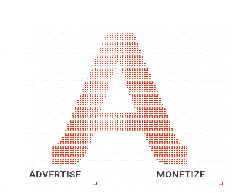Day 3: Types of Taxes in Canada
Introduction:
Canada’s taxation system includes various taxes that individuals and businesses must understand and comply with. Today, we will explore the different types of taxes in Canada, including income tax, GST/HST, corporate tax, capital gains tax, and property taxes. Understanding these taxes and their implications is essential for effective tax planning and compliance.
Income Tax
Federal and Provincial Income Tax:
Canada has a dual tax system, where the federal and provincial/territorial governments levy income tax. This system means that individuals and businesses pay income tax to both levels of government, each with its rates and regulations.
Personal Income Tax:
Personal income tax is the most significant source of revenue for both federal and provincial/territorial governments. It is levied on the income of individuals, including wages, salaries, self-employment income, investment income, and pensions. The tax is calculated based on progressive tax rates, which means that higher income levels are taxed at higher rates.
- Federal Tax Rates: The federal tax rates range from 15% to 33% for different income brackets.
- Provincial/Territorial Tax Rates: Each province and territory has its own tax rates, which vary significantly. For example, Ontario’s provincial tax rates range from 5.05% to 13.16%, while Quebec’s rates range from 15% to 25.75%.
Corporate Income Tax:
Corporations in Canada are subject to corporate income tax on their profits. Similar to personal income tax, corporate tax is levied by both federal and provincial/territorial governments.
- Federal Corporate Tax Rates: The general federal corporate tax rate is 15%, with a lower rate of 9% for small businesses that qualify for the small business deduction.
- Provincial/Territorial Corporate Tax Rates: Provincial and territorial corporate tax rates vary, with some provinces offering lower rates for small businesses.
Goods and Services Tax (GST) and Harmonized Sales Tax (HST)
GST and HST Overview:
The Goods and Services Tax (GST) is a federal value-added tax levied on most goods and services sold in Canada. The GST rate is currently 5%. In some provinces, the GST is combined with the provincial sales tax to create the Harmonized Sales Tax (HST). The HST rate varies by region, ranging from 13% to 15%.
Provincial Sales Tax (PST):
In provinces that do not use the HST, a separate Provincial Sales Tax (PST) is applied. For example, British Columbia has a 7% PST, while Saskatchewan’s PST rate is 6%. Some items, such as basic groceries and prescription medications, are exempt from GST/HST and PST.
Capital Gains Tax
What is Capital Gains Tax?
Capital gains tax is levied on the profit realized from the sale of a capital asset, such as real estate, stocks, or bonds. In Canada, only 50% of the capital gain is taxable. This means that if you sell an asset for a profit, half of the gain is included in your taxable income and taxed at your marginal tax rate.
Exemptions and Deductions:
There are several exemptions and deductions available for capital gains tax, including the principal residence exemption, which exempts the sale of your primary home from capital gains tax. Additionally, the Lifetime Capital Gains Exemption (LCGE) allows individuals to exclude up to $883,384 (for 2023) of capital gains from the sale of qualified small business shares and farm/fishing property.
Property Taxes
Overview of Property Taxes:
Property taxes are levied by municipalities and are based on the assessed value of real property, such as land and buildings. These taxes fund local services, including education, infrastructure, public safety, and recreational facilities.
Assessment and Rates:
Property values are assessed by municipal assessment authorities, and tax rates vary by municipality. Some municipalities offer property tax deferral programs for seniors, low-income individuals, and people with disabilities.
Other Taxes
Excise Taxes and Duties:
Excise taxes are levied on specific goods, such as alcohol, tobacco, and gasoline. These taxes are designed to generate revenue and discourage the consumption of certain products. Duties are taxes imposed on goods imported into Canada, including tariffs and customs duties.
Payroll Taxes:
Employers in Canada are required to contribute to payroll taxes, including Employment Insurance (EI) and Canada Pension Plan (CPP) premiums. These contributions fund social programs that provide financial support to individuals in case of unemployment, disability, and retirement.
Sin Taxes:
Sin taxes are levied on goods and services considered harmful to society, such as alcohol, tobacco, and sugary beverages. These taxes aim to reduce consumption of these products and generate revenue for public health initiatives.
Key Takeaways
1. Federal and Provincial Responsibilities:
- Canada’s dual tax system means that individuals and businesses must comply with both federal and provincial/territorial tax laws.
- Understanding the different tax rates and regulations at each level of government is crucial for effective tax planning.
2. Variety of Taxes:
- Canada levies a variety of taxes, including income tax, GST/HST, corporate tax, capital gains tax, and property taxes.
- Each type of tax has its own rules, rates, and exemptions.
3. Importance of Compliance:
- Complying with tax laws is essential to avoid penalties and interest charges.
- Staying informed about changes in tax legislation can help you take advantage of new benefits and credits.
Conclusion
Understanding the different types of taxes in Canada and their implications is essential for effective tax management. By familiarizing yourself with the various taxes, you can make informed decisions and ensure compliance with tax laws.
Stay tuned for Day 4, where we will explore the concepts of tax residency and domicile, and their impact on your tax obligations.
Bookkeeping Services 
Accurate bookkeeping is crucial for effective tax management. Our comprehensive bookkeeping services ensure your financial records are meticulously maintained, making tax filing and compliance hassle-free. You can focus on growing your business with expert assistance while we handle the numbers.
Our services include:
- Transaction Recording: Precise recording of all financial transactions.
- Financial Reporting: Regular reports to keep you informed of your financial health.
- Tax Preparation: Organized records for smooth tax filing.
- Compliance: Ensuring adherence to tax laws and regulations.
Contact us at mtfco@onewebonehub.com to learn more about how our bookkeeping services can support your financial needs.












